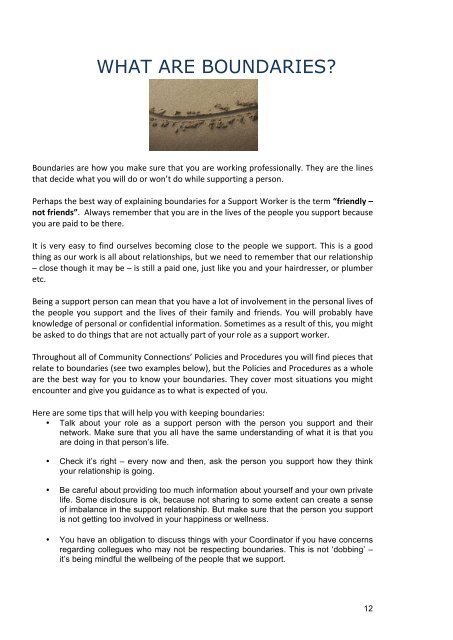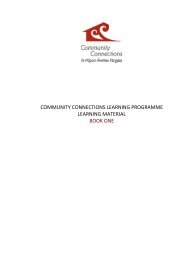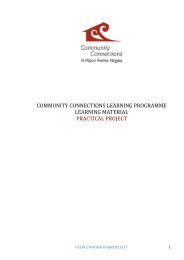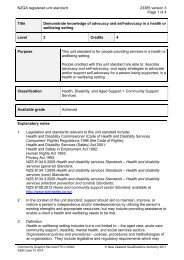BookOne
Create successful ePaper yourself
Turn your PDF publications into a flip-book with our unique Google optimized e-Paper software.
WHAT ARE BOUNDARIES?<br />
Boundaries are how you make sure that you are working professionally. They are the lines <br />
that decide what you will do or won’t do while supporting a person. <br />
Perhaps the best way of explaining boundaries for a Support Worker is the term “friendly – <br />
not friends”. Always remember that you are in the lives of the people you support because <br />
you are paid to be there. <br />
It is very easy to find ourselves becoming close to the people we support. This is a good <br />
thing as our work is all about relationships, but we need to remember that our relationship <br />
– close though it may be – is still a paid one, just like you and your hairdresser, or plumber <br />
etc. <br />
Being a support person can mean that you have a lot of involvement in the personal lives of <br />
the people you support and the lives of their family and friends. You will probably have <br />
knowledge of personal or confidential information. Sometimes as a result of this, you might <br />
be asked to do things that are not actually part of your role as a support worker. <br />
Throughout all of Community Connections’ Policies and Procedures you will find pieces that <br />
relate to boundaries (see two examples below), but the Policies and Procedures as a whole <br />
are the best way for you to know your boundaries. They cover most situations you might <br />
encounter and give you guidance as to what is expected of you. <br />
Here are some tips that will help you with keeping boundaries: <br />
• Talk about your role as a support person with the person you support and their<br />
network. Make sure that you all have the same understanding of what it is that you<br />
are doing in that person’s life.<br />
• Check it’s right – every now and then, ask the person you support how they think<br />
your relationship is going.<br />
• Be careful about providing too much information about yourself and your own private<br />
life. Some disclosure is ok, because not sharing to some extent can create a sense<br />
of imbalance in the support relationship. But make sure that the person you support<br />
is not getting too involved in your happiness or wellness.<br />
• You have an obligation to discuss things with your Coordinator if you have concerns<br />
regarding collegues who may not be respecting boundaries. This is not ‘dobbing’ –<br />
it’s being mindful the wellbeing of the people that we support.<br />
12





